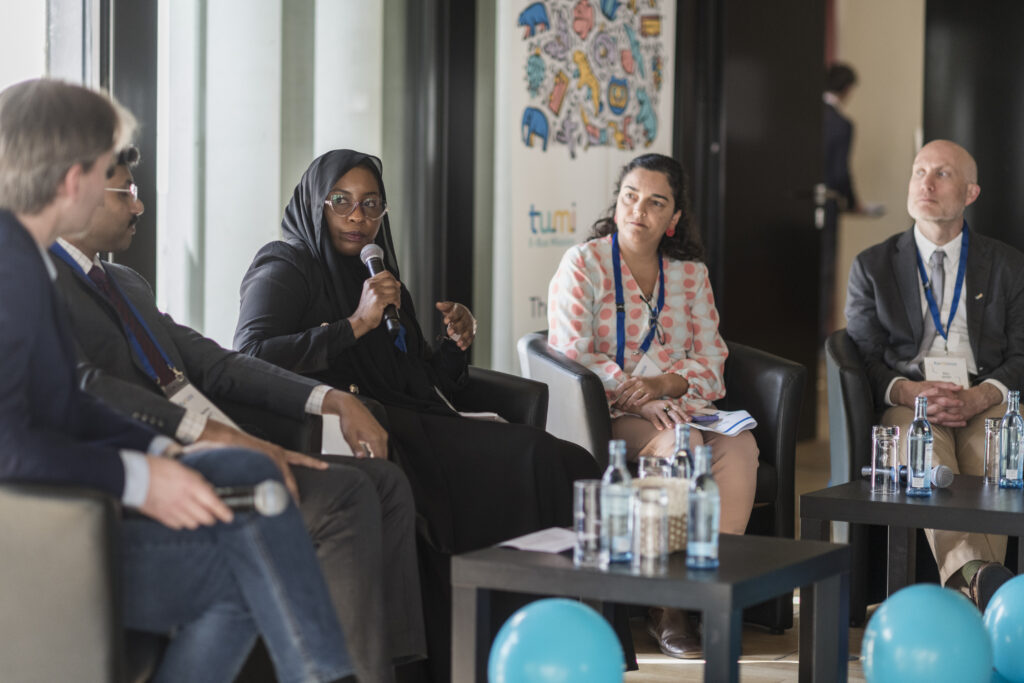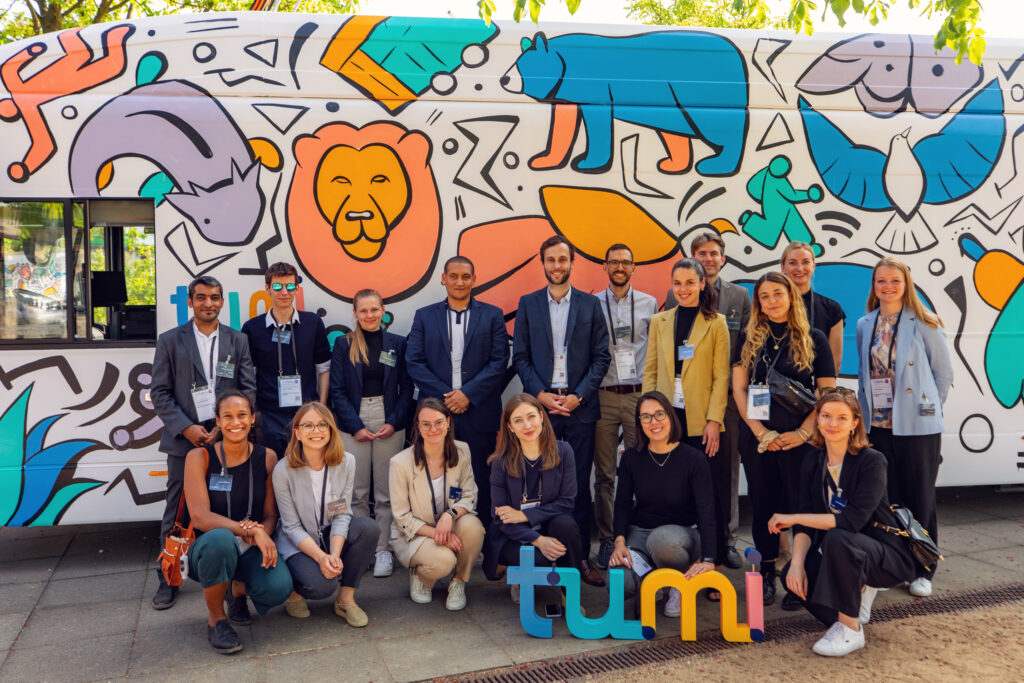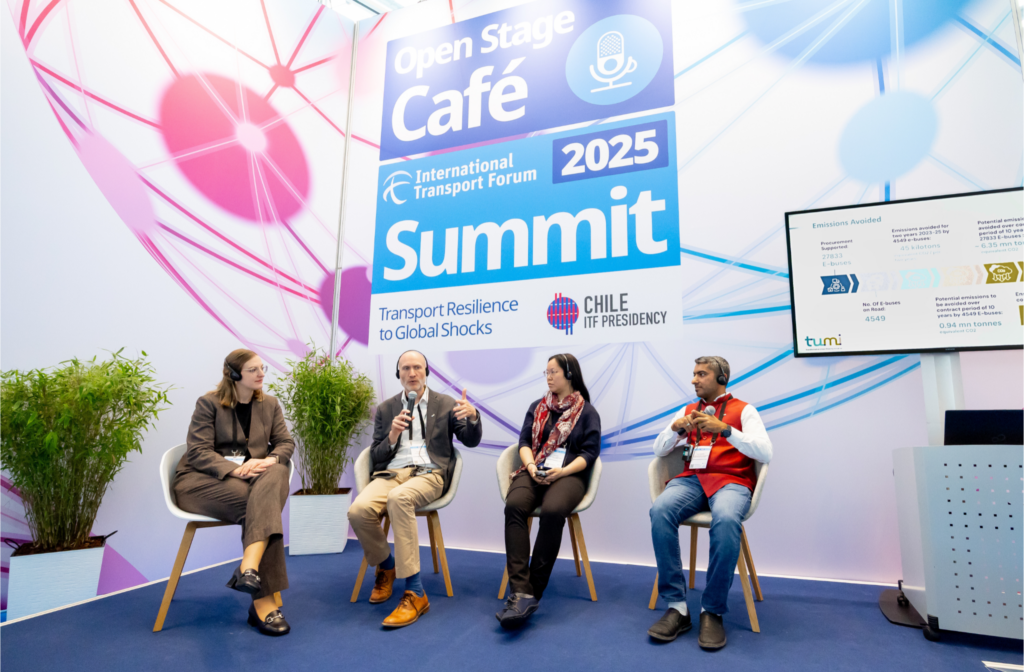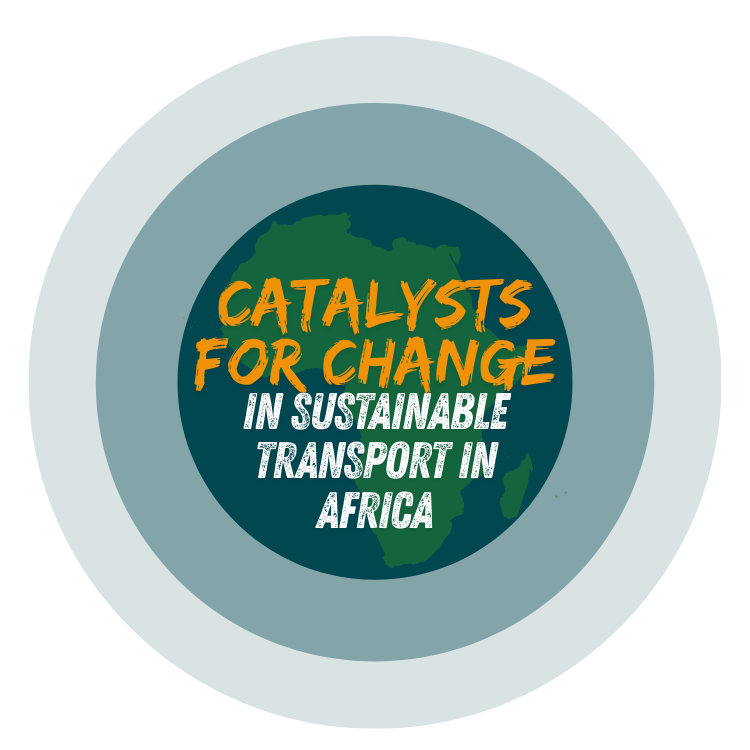
In cities across the world, millions of people rely on buses every day to get to work, school or the market. But while they connect lives and livelihoods, traditional bus fleets have also contributed heavily to urban pollution and climate change. Urban transport is responsible for roughly 40% of global transport emissions — a figure that could nearly double by 2050 without intervention. Faced with this urgent challenge, the TUMI E-Bus Mission was launched in 2022 as a global initiative to accelerate the electrification of public bus systems. Its premise was bold and clear: that e-buses are not just a cleaner alternative, but a powerful lever to improve air quality, reduce emissions and deliver better public transport.

At the heart of the mission was a goal as ambitious as it was necessary: enabling cities to procure 100,000 electric buses. As the initiative has now come to an end, that target has not only been reached, it has sparked lasting change. A key element of the strategy was the focus on 20 deep dive cities — including Nairobi, Bogotá, Jakarta and São Paulo — where in-depth technical assistance, roadmaps and policy support were provided to accelerate e-bus deployment. Between 2022 and mid-2023, 10 of these cities recorded tangible growth in e-bus fleets, demonstrating the effectiveness of long-term engagement (TUMI, 2023). By supporting an extended network of over 100 additional cities, the mission created a growing global community aimed at achieving large-scale, just and inclusive e-bus transitions.
The TUMI E-Bus Mission supported over 120 cities in total, delivering measurable outcomes:

What made this progress possible? An approach grounded in tailored technical support, peer learning , and an open knowledge hub. Through hands-on capacity-building and study tours, the E-Bus Mission supported cities in tackling common barriers, including high upfront costs, limited technology access and limited political commitment.
These efforts weren’t abstract. In Bengaluru, India, commuter Anuja Ghosalka describes the difference she feels on her daily commute:
Traveling by E-Bus is comfortable and convenient. Because it is noiseless, I can travel with peace of mind.
Anuja Ghosalka
And change wasn’t just felt by passengers. In several cities, more women were trained and hired as bus drivers, opening new opportunities and making the transition more inclusive. The TUMI E-Bus Mission was anchored in five core pillars: coalition building, learning expeditions, technical assistance, private sector engagement and open knowledge sharing. But importantly, the work lives on.
TUMI’s open-access knowledge hub, with more than 130 publications covering topics from circular battery use to gender-responsive transport planning, will continue to support cities, practitioners and policymakers beyond the life of the mission.

As the TUMI E-Bus Mission ends, it leaves behind more than numbers — it leaves behind a movement.
A growing coalition of cities, experts, and citizens are now better equipped than ever to electrify their fleets and reimagine what public transport can be. Because electrifying buses isn’t just about cleaner streets – it’s about more just, resilient and human cities.
(This article has first been published on the TUMI website.)
Watch the Mission Closing Session on YouTube.
TUMI is the leading global implementation initiative on sustainable mobility formed through the union of 11 prestigious partners. We are united in one goal: changing mobility for the benefit of people and the environment, with a view to the future. With TUMI, the German Federal Ministry for Economic Cooperation and Development (BMZ) is supporting climate-friendly, inclusive, safe and affordable Mobility in cities. TUMI is funded by BMZ and implemented by GIZ in collaboration with all TUMI partners.
 “Celebrating the TUMI E-Bus Mission” session at the 2025 TUMI Conference | ©Bruno Giliberto
“Celebrating the TUMI E-Bus Mission” session at the 2025 TUMI Conference | ©Bruno Giliberto

Cristal Stefania Cedeño Tobanda
cristal.cedenotobanda@giz.de
Visit profile
If you believe that you suffer (potential) negative social and/or environmental consequences from IKI projects, or wish to report the improper use of funds, to voice complaints and seek redress, you can do so using the IKI Independent Complaint Mechanism.
